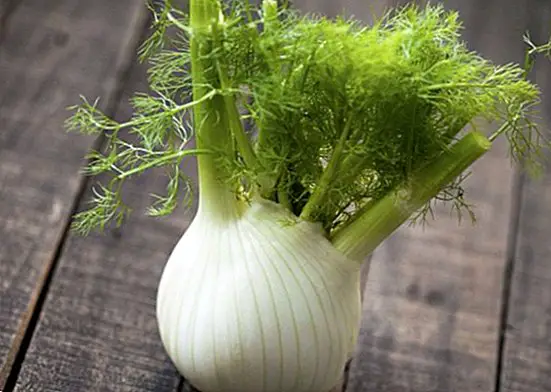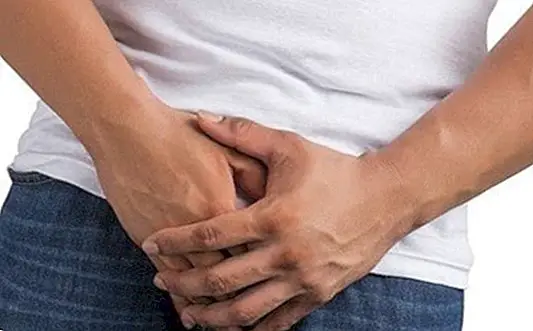Chickpeas: small but with many benefits
The chickpea it is one of the oldest varieties of the leguminous family, which were already consumed in ancient Egypt, at the same time as in the Roman Empire, chickpeas they were used as a surname (there was a belief that the food of the garden should be honored).
That was why Marco Tulio Cicero got the chickpea could be perpetuated in time, since as we can see, his surname came from "cicer", which would be the acceptance of chickpea in Latin.

But always the chickpeas They have been well known for their important benefits and properties, being one of the vegetables more energetic In addition, with them the traditional and popular is elaborated hummus, which consists of a wonderful chickpea cream from Greece.
This is because, as we will see, they contain slow-absorbing carbohydrates, as well as many vitamins, minerals and fiber.
Benefits and properties of chickpeas
Interesting nutritional content
As we mentioned in a very summarized way in a previous paragraph, the benefits and properties of chickpeas they derive in that they are composed of carbohydrates (mainly starch). They are slow absorption, so they are ideal for both diabetic people, and those who need extra energy in the long term.
In addition, they contain proteins, although in regard to fatty acids, chickpea is characterized by unsaturated fatty acids linoleic and oleic, which protect the body from the so-called high cholesterol.
They also contain a significant amount of fiber, which helps regulate intestinal transit and is ideal for those who suffer from constipation.
They also have vitamins and minerals, including calcium, magnesium, iron, phosphorus and potassium, which help maintain the high defenses of our body.
Nutritional information of the chickpeas (per 100 grams of edible part):
- Kilocalories: 305
- Carbohydrates: 48.6
- Proteins: 20
- Total fats: 3,4
- Fiber: 9.5
- Cholesterol (mg): 0
- Vitamins: (A, retinol: 30 / B1, thiamin: 0.50 / B2, riboflavin: 0.15 / B3, niacin: 1.5 / B6, pyridoxine: 0.54 / C: 4).
- Minerals: (Sodium: 27 / Potassium: 580 / Calcium: 110 / Phosphorus: 428 / Magnesium: 108 / Iron: 6.5).
Ideal against constipation
As it happens with other wonderful vegetables - and also of small size - as it is the case of green peas, chickpeas have a good amount of fiber. Although it is not a nutrient in itself, fiber is essential for the proper functioning of our body.
Specifically, helps improve intestinal transit, so they are an excellent natural option in the treatment of constipation, especially when it is occasional.

Help reduce cholesterol
As we indicated in a previous section, a regular consumption of chickpeas in our diet gives us interesting benefits in case of high cholesterol. More specifically, they help to decrease the high amounts of low density lipoproteins (that is, known as LDL cholesterol or bad cholesterol).
This was demonstrated in this scientific study, which found that a regular consumption of these vegetables help to prevent or reduce the risk of cardiovascular diseases.
Very good for your bones
As we saw, chickpeas stand out for their incredible nutritional wealth. And, precisely, it is their contribution in certain nutrients that makes these legumes ideal foods for bone health.
Specifically, it provides calcium, magnesium, zinc, manganese, vitamin K and iron, all of them essential nutrients for the construction and maintenance of our bones.
Ideal in case of anemia
Chickpeas are also very rich in iron. For example, 100 grams of chickpeas contribute around 6.5 mg. of iron, so they become a wonderful option more when it comes to providing iron to our diet.
As you know, Iron is essential for the production of red blood cells, besides being important for an adequate cellular function and normal growth.
So, they are an ideal option in case of anemia, by helping to meet the daily iron needs of children, adolescents and people who follow a vegetarian diet.
In fact, did you know that a single cup of chickpeas contribute around 30% of the daily iron needs for a woman?
Properties of chickpeas, in short
In summary, below we highlight what are the main properties that chickpeas bring us:
- Very rich in essential nutrients, highlighting the presence of vitamins (B1, B2, B6, B9, C, E and K) and minerals (calcium, zinc, magnesium, iron, potassium and phosphorus).
- High fiber content, and also provides a good amount of vegetable proteins.
- They help prevent or improve constipation, helping in intestinal transit.
- Useful for lowering high cholesterol.
- They protect us against cardiovascular diseases.

When it is not appropriate to eat chickpeas: its main contraindications
As with any other food, Chickpeas also have contraindicationsdetermined, so that their consumption is not always adequate, even when they are nutritious and healthy.
For example, the consumption of chickpeas is not advised in case of having a delicate stomach or suffering from a digestive or intestinal problem, since - as you surely know - pulses are not recommended in these cases.
Do the chickpeas get fat?
Because the chickpeas are very energetic (since 100 grams of chickpeas contribute around 305 kcal.), Some people do not recommend their consumption in case of weight loss or overweight diets, due mainly to their high intake of carbohydrates.
However, we should not underestimate its benefits and its high nutritional content, at the same time that -in fact- its contribution in fats is very low, also highlighting its content in oleic and linoleic acids (healthy fats, by the way).
So, chickpeas not only do not fatten but their regular consumption is recommended in any type of food, even if we follow a diet of weight loss. However, it is advised that this consumption is not excessive. This article is published for informational purposes only. You can not and should not replace the consultation with a Nutritionist. We advise you to consult your trusted Nutritionist.



